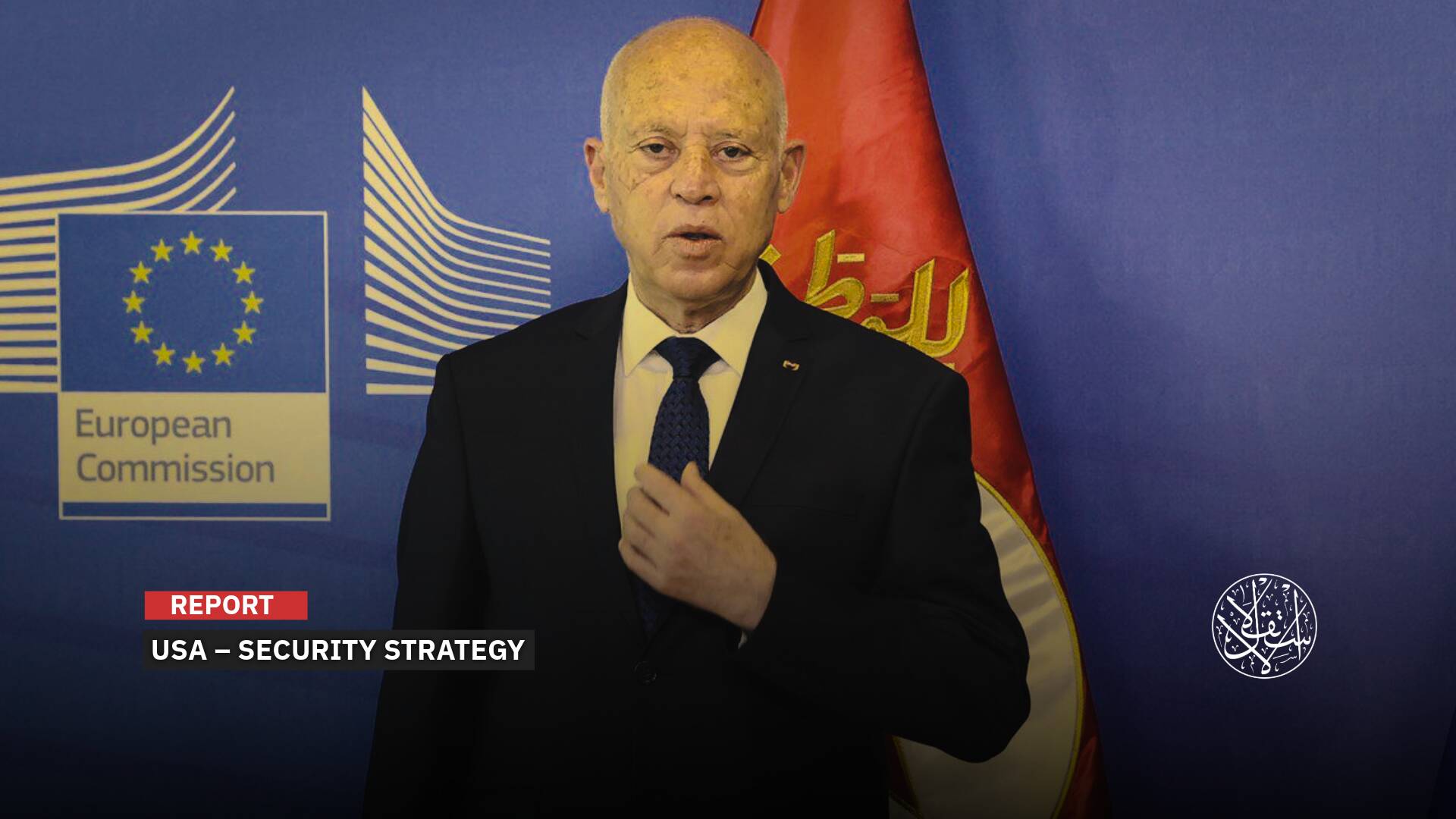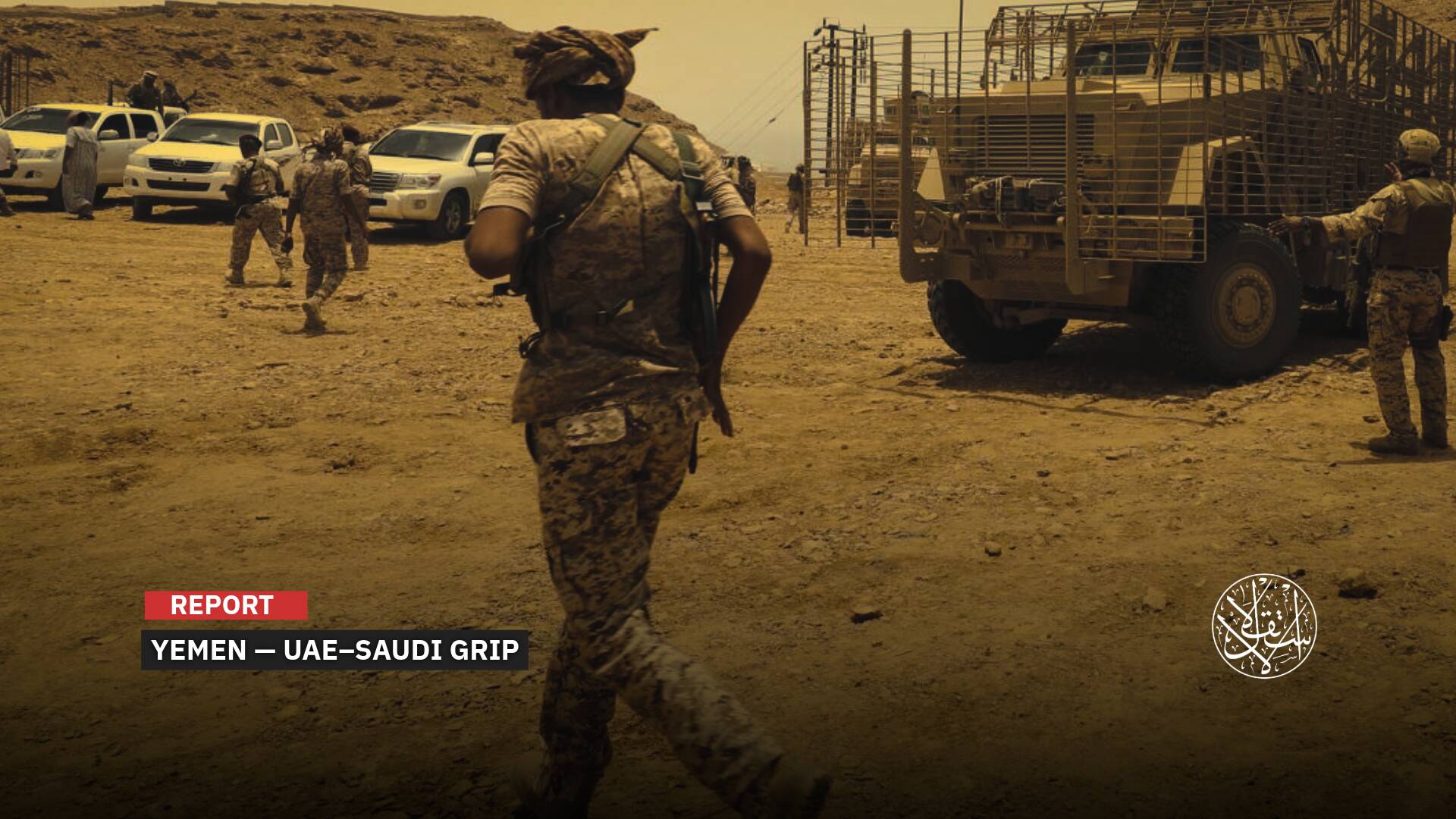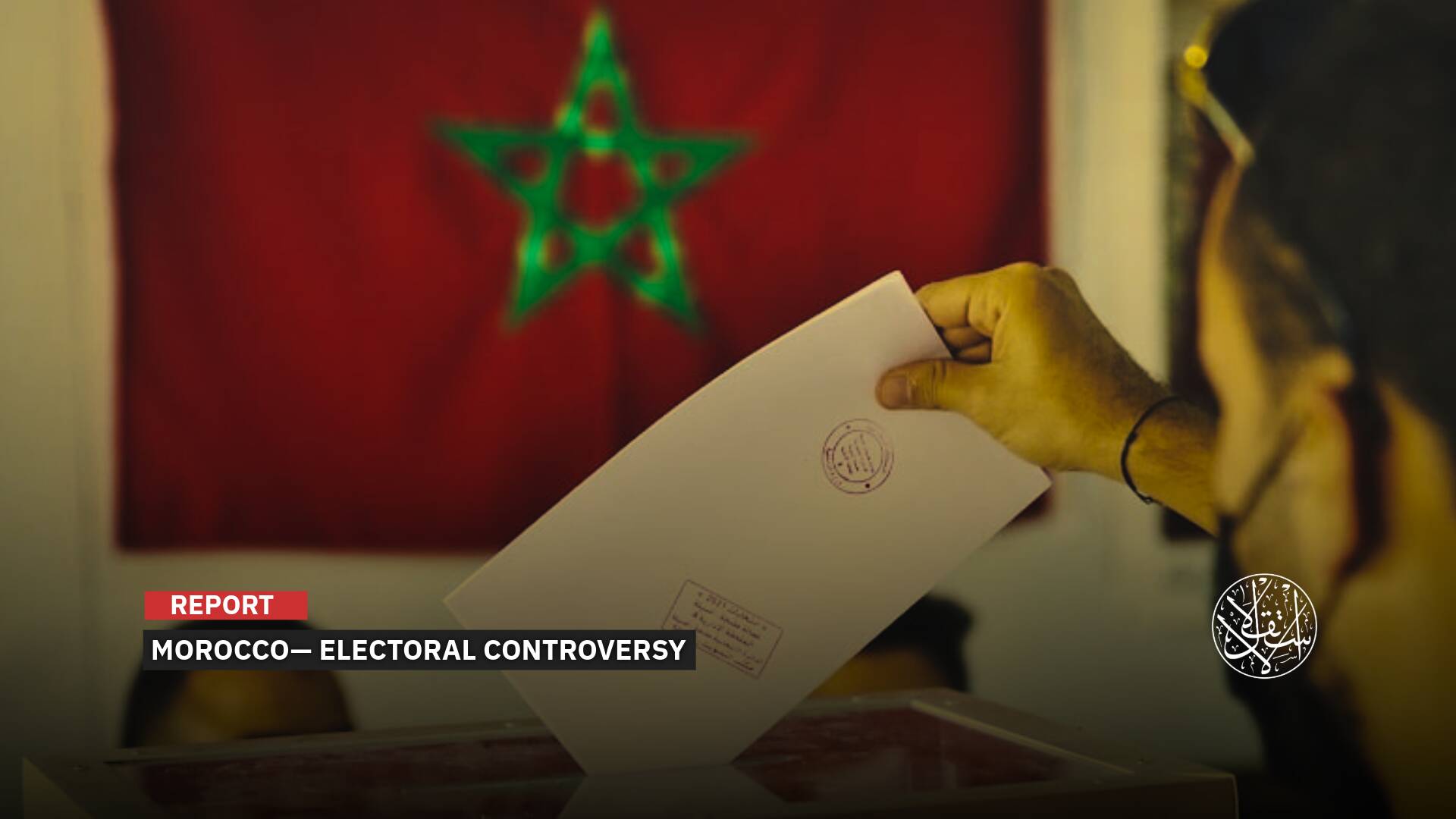A Message to America: Why Did Iran Launch Attacks Against Its Opponents in Iraqi Kurdistan?

In the wake of the popular protests that erupted in Iran in mid-September 2022, Tehran launched violent attacks against areas in the Kurdistan region of Iraq, which led to dozens of deaths and injuries, amid local and international condemnations of the violation of Iraqi sovereignty.
Iran began bombing on September 24, 2022, under the pretext of targeting the headquarters of Kurdish-Iranian opposition parties, as Iranian television announced that the ground forces of the Revolutionary Guard targeted several headquarters of separatist terrorists in the northern Iraq region with precision missiles.
The attacks on the Iraq territory, which coincided with the protests against the killing of the Iranian-Kurdish woman Mahsa Amini, raised several questions about what is behind the current bombing, especially since the headquarters of the opposition parties have been present for years in the Kurdistan region.
Broad Condemnations
Iranian attacks on Iraqi territory were met with widespread local and international condemnation, as Prime Minister Mustafa Al-Kadhimi, during a meeting of the Iraqi National Security Council in early October 2022, rejected the Iranian bombing, stressing the rejection of attempts to take Iraq as an arena for settling accounts.
Al-Kadhimi stressed in a statement that the government is continuing to take all necessary measures to stop these behaviors and to address everything that contradicts the principle of good neighborliness that Iraq believes in and pursues in its relations with its neighbors, and that security challenges are dealt with through diplomatic channels and joint security cooperation.
Prior to that, on September 29, the Iraqi Ministry of Foreign Affairs summoned the Iranian ambassador to Baghdad and handed him a strongly worded protest note regarding the Revolutionary Guards bombing sites in the Kurdistan region of Iraq, according to a statement carried by the Iraqi News Agency, quoting the ministry's spokesman, Ahmed Al-Sahaf.
On September 28, the US State Department expressed strong condemnation of Iran's use of ballistic missiles and drone attacks against the Kurdistan region of Iraq as an unjustified violation of Iraq's sovereignty and territorial integrity.
State Department spokesman Ned Price indicated that the Washington administration is aware of reports of civilian casualties and regrets any loss of life resulting from the attack.

Similarly, the foreign ministries of France, Germany, Britain, Saudi Arabia, Jordan, and Egypt condemned, in separate statements, Iran's "indiscriminate bombing" targeting civilians and called on Tehran to stop its flagrant violation of Iraq's sovereignty.
Left-wing Iranian Kurdish opposition parties and organizations, especially the PJAK and Komala parties, are based in the Kurdistan region of Iraq, and they have historically fought armed confrontations against the Iranian regime despite the decline in their activities in recent years, according to the French news agency.
However, these organizations are still highly critical of the situation in Iran on social media, by sharing videos of the demonstrations taking place in the country since the death of the young woman, Mahsa Amini, in mid-September 2022 after she was beaten by the moral police
Iranian Justifications
On the Iranian level, the Iranian Foreign Ministry, through its spokesman, Nasser Kanaani, justified during a press conference on October 3, saying that his country refuses to allow the territory of Iraq to be a seat of threats to Iran's national security.
Kanaani added: "We told officials in Baghdad and the Kurdistan region that we refuse to turn Iraqi lands into a threat to Iranian security," claiming that all measures taken by Iran were legal.
In this context, the Assistant Director of the Doctrinal and Political Guidance Office for Political Affairs, Brigadier General Rasul Sanai-Rad, said that the bombing of northern Iraq comes in response to their active participation in provoking riots and their separatist actions inside the country in reference to the Iranian Kurdish opposition parties.
He added that security has always been the red line for Iran, and this attack is a warning to terrorists about their interference and attempt to destabilize security.
According to him, the anti-revolutionary and coup terrorist groups, including the separatist groups, tried to take advantage of recent events.

On September 29, the Iranian Mehr news agency quoted the commander of the ground forces of the Revolutionary Guards, Brigadier General Mohammad Pakpour, as saying that the attacks were carried out by the fighters of the Hamza camp of the Guard with 73 ballistic missiles and dozens of suicide drones, and they hit their targets accurately in 42 locations.
According to Iranian television, the bombing targeted the headquarters of the Kurdistan Komala, Kurdistan Democratic Party, and Kurdistan Freedom parties, which the Iranian authorities classify as "terrorists."
On September 28, Iran announced that it had bombed northern Iraq with 73 ballistic missiles, as the commander of the Iranian ground forces, Kiomars Haidari, said that 73 ballistic missiles were launched at Kurdish terrorist forces in northern Iraq, targeting 42 places at a distance of 400 km.
Haidari added in a statement carried out by Baghdad Today agency that there were three waves of attacks. The first wave was 25, the second was 25, and the last was 23. There were a few minutes between each wave.
On September 24, the Iranian Revolutionary Guard announced the launch of a new military operation inside the territory of the Kurdistan region in the name of "Bombing and Fire" in order to protect the security of the Iranian border.
The Revolutionary Guards accused the authorities in the Kurdistan region of failing to curb the repeated activities of (Kurdish opponents) terrorists and called on the region's residents to stay away from the vicinity of terrorist headquarters.
Forward Escape
Regarding the dimensions of the attacks, coinciding with the movement of the Iranians inside, the Iraqi writer Jawad Malakshahi said that the barbaric bombing cannot break the will of the Kurdish people, and Tehran cannot achieve its desired goals by bombing the headquarters and homes of the families of his opponents and the civilians of the Kurdistan region.
In an article published by the Iraqi Kurdish Rudaw website on October 2, 2022, the writer considered that the Iranian regime is suffering from stifling political, economic, and social crises, as the majority of Iranians are from the poor classes that have reached the point where they cannot secure their food.
He said that is why the Iranian regime is trying to export these crises outside its borders and divert the attention of the street from the miserable reality facing the citizen, and the brutal bombing of the headquarters of the Kurdish opposition forces is only part of a failed scenario and a desperate attempt to control the situation inside the country.
Malakshahi said that the reactions of major countries such as the United States and Britain were direct messages to Iran that these repeated transgressions on Iraqi soil cannot be accepted and the continued killing of defenseless civilians should be stopped.
The writer indicated that faking crises inside Iran and outside its borders cannot mitigate public anger and resentment against the regime, and on the contrary, the voices of the opposition thirsting for freedom will rise more and more.
Therefore, the regime in Tehran must review its policies at the internal and external levels and follow a flexible policy with its people and a rational policy with the peoples of the region.
The death toll from Iran's bombing of the Kurdistan region of Iraq has reached 13, and the injury of 58 others, most of them civilians, according to a statement issued by the anti-terror agency in the Kurdistan region of Iraq on September 29, 2022.

For his part, the Iraqi writer Amer al-Qaisi said the Iranian leadership chose what it believed to be a solution to flee forward by bombing mountainous areas north of Erbil, the capital of the Kurdistan Region, instead of looking for radical solutions to address its internal political crisis with the Iranian public.
He added in an article published by the Kitabat website on September 26 that Tehran claims the presence of terrorists targeting the Iranian regime, which is the name it usually gives to its opponents everywhere, including the protesters inside Iran.
He said that several months ago, Iran bombed a site in the heart of Erbil that it claimed was the headquarters of the Israeli Mossad's activities. A joint parliamentary and governmental committee proved this claim to be false, stressing in its report that the bombed place was completely civilian and it was a house belonging to a Kurdish sheikh where he receives his guests.
Al-Qaisi pointed out that the policies of creating enemies and deluding the public into them are unsuccessful and dull in the era of information technology, which easily provides facts to the public.
He stressed that the Iranian people are aware that the regime's allegations are false and that those the regime calls terrorists are, in fact, the popular opposition to a coercive tyrannical regime outside all civilized standards.
He added that the Iranian regime is trying to divert attention from the imaginary external enemy and violate Iraq's sovereignty in order to "cure" this enemy instead of looking for the real reasons for the existence of the "enemies" and their large number and their widespread and continuous protests for the lost rights of various segments of the Iranian peoples of their different national, ethnic, and sectarian affiliations.
Struggle of Wills
In another context, the Iraqi writer Abdul-Jabbar al-Jubouri said that the Iranian bombing is taking place amid complete silence of the coordination framework (pro-Iran) and the Shiite Sadrist movement, condemning this aggression, while their masses came out throughout the southern provinces and the middle Euphrates condemning the Turkish bombing of Zakho district and Duhok on July 23, 2022.
Al-Jubouri added, during an article published by the Iraq News Network website on October 2, that this political duplicity expresses the spirit of Iranian loyalty and subordination to the parties that return religion to Iran.
The bombing was considered a repercussion of the current political conflict in Iraq between the blocs and parties and the diversity of political and ideological loyalties, and most of these blocs follow Iran, between the (Iranian Ministry of Security) and the Revolutionary Guards, which made the formation of a majority government impossible.
He continued to say that, likewise, the struggle of Iran's wings within the state parties and blocs and all of this is taking place because of the failure of the nuclear agreement between Iran, on the one hand, and the United States and the European Union on the other, as well as Russia's war on Ukraine."

Al-Jubouri pointed out that Iranian pressures took various forms, including political, religious, military, and even social ones, and they succeeded in large part of them, and the evidence is the emergence of the (state administration) alliance with the entry of the Sunni Sovereignty bloc, and the attempt to annex the Kurdistan Democratic Party by accepting some Conditions and demands of the party by the coordinating framework.
The Coordinating Framework Forces announced on September 25 the formation of the State Administration coalition with the Sunni Sovereignty Alliance, the Sunni Azm Alliance, the Kurdistan Democratic Party, the Patriotic Union of Kurdistan, and the Christian Babylon Movement, but KDP member Wafaa Muhammad confirmed on the same day to the Al-Mirbad Iraqi radio that there is no agreement to form a coalition.
Al-Jubouri added: "We believe in the end, the KDP will kneel and submit to the pressures, threats, and Iranian bombing of Iraqi Kurdistan, in order to integrate it into the state administration bloc and form a government headed by Muhammad Shia Al-Sudani, the candidate for the coordination framework."
"That was after Muqtada al-Sadr retired from politics and left the government, after Iran succeeded in removing him from Parliament," adding: "Then Iranian interference has overcome the American interference in Iraqi affairs."
Since the Iraqi parliamentary elections on October 10, 2021, the political forces have not been able to form a new government; this prompted the Sadrist movement to resign from Parliament in June 2022 after its inability to form a majority government.
Sources
- Iraqi Kurdistan: dead and wounded in Iranian bombing targeting sites of Kurdish-Iranian opposition parties [Arabic]
- Iraq protests Iran's bombing of its lands [Arabic]
- Iran deports its crisis by bombing Erbil! [Arabic]
- The repercussions of the Iranian-Turkish bombing on Iraq [Arabic]
- Will Tehran achieve its goals of aggressive policies? [Arabic]
- 71 dead and wounded as a result of the "Revolutionary Guard" bombing of Iraqi Kurdistan... Baghdad decides to summon the Iranian ambassador [Arabic]
- Our correspondent: Renewed Iranian bombing of villages in the Iraqi province of Erbil [Arabic]
- Iraq: The death toll from Iran's bombing of the Kurdistan region has risen to 13 [Arabic]
- Egypt: Iranian bombing of the Kurdistan region is a blatant threat to Iraq's sovereignty and security [Arabic]
- A member of the Kurdistan Democratic Party denies announcing a new alliance under the name "Coalition of State Administration" [Arabic]
- Al-Kadhimi at a National Security meeting: We reject the Iranian bombing [Arabic]
- France condemns Iran's bombing of Iraqi Kurdistan [Arabic]
- Saudi Arabia condemns Iranian bombing: We reject the threat to Iraq's stability [Arabic]
- Tehran justifies the bombing of Iraqi territory: it comes within the legal frameworks [Arabic]
- Iran announces the bombing of northern Iraq with 73 ballistic missiles [Arabic]
- Iran justifies its bombing of northern Iraq: in response to the riots inside the country [Arabic]
- Iran ignites the border to settle scores with internal opponents [Arabic]
- The bombing of the Kurdistan region..Iraqi rejection and Iranian threat [Arabic]










